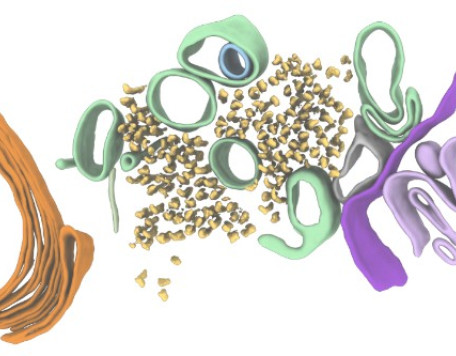© Pint of Science, 2025. All rights reserved.
Our body is a huge and immensely intricate network of interactions and chemical reactions bubbling away day and night to keep us alive. But how does it all work? How can trillions of seemingly invisible molecules all interact and communicate to produce something as complex as a human? Join us to find out how scientists are investigating this conundrum and how they are teasing out the mysteries of the chemistry of life.
Please note that this event takes place on the ground floor and is accessible for those with impaired mobility.
Please note that this event takes place on the ground floor and is accessible for those with impaired mobility.
PoPPI – Perturbation of Protein-Protein Interactions
Professor Andy Wilson
(Professor of Organic Chemistry)
The pharmaceutical industry faces multiple challenges: to improve productivity it is necessary to develop new medicines that address unmet medical needs. Protein-protein interactions represent a significant but challenging opportunity for treating diseases such as cancer, inflammation and infection. Most existing small drugs function by binding to well-defined pockets in proteins - like a key fitting into a lock. This discussion will focus on perturbing protein-protein interactions, which requires a different type of interaction between drug and protein - like a hand gripping a ball.
Seeing the invisible workings of the cell
Dr Rebecca Thompson
(Cryo-Electron Microscopy Support Scientist)
The human body is composed of around 37 trillion cells, each packed full of molecular machines that perform all the jobs needed to keep us alive. Each cell is a city in miniature, a hive of activity. And like a city, cells have a lot of inhabitants. In the smallest cell, there are over 200 million individual protein machines. Understanding how they work and interact with each other is the key to understanding how cells, and ultimately our bodies work. But how do we see cells, and the protein machines inside them? By using some of the most powerful microscopes in the world, electron microscopes
The complex life of sugars
Professor Bruce Turnbull
(Professor in Biomolecular Chemistry)
We are always being told that sugar is bad for us, but there is a lot more to the science of sugars than the stuff you put in your tea. Every cell in your body is covered with a forest of sugar molecules that allow the cells to interact with their surroundings. Sugar molecules on a human egg are essential for mediating the first steps of fertilisation and thus creation of new life. However, many viruses and bacteria have learned to exploit our sugar coating as a means to latch onto and enter our cells, leading to disease and even death. In this talk I will explore the complex life of sugars.
Map data © OpenStreetMap contributors.
Other The Social events
2025-05-19
Making Sense of Memory Loss
The Social
21 Merrion Street, Leeds, LS2 8JG, United Kingdom
2025-05-20
Blurred Boundaries: Where Science, Art, & Music Collide
The Social
21 Merrion Street, Leeds, LS2 8JG, United Kingdom






